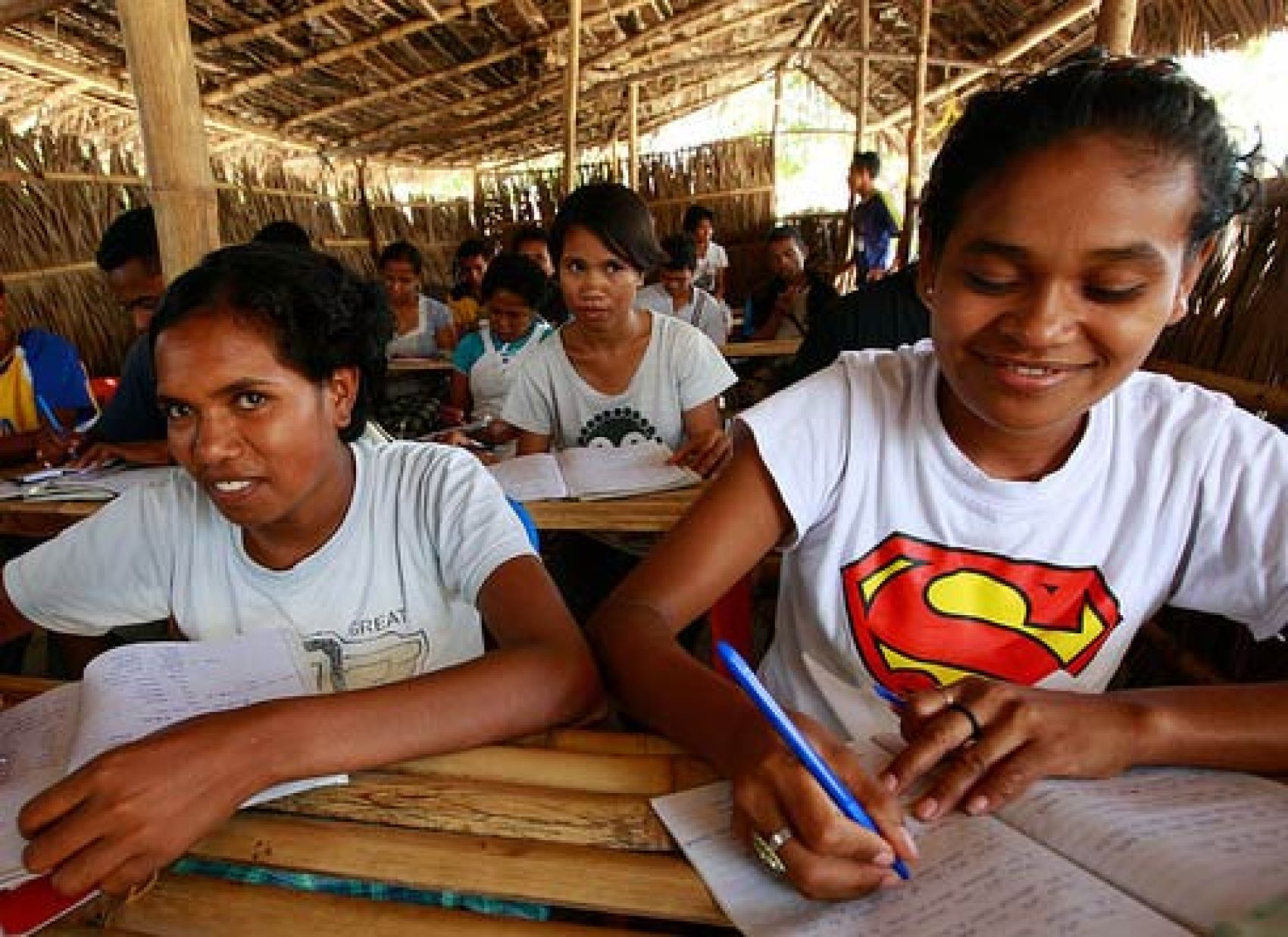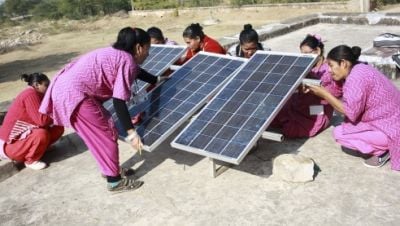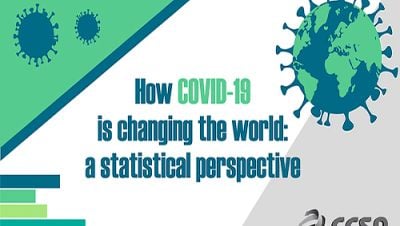Dr. Merve Hosgelen is the National Human Development Report Project Manager at UNDP Timor-Leste
While many countries’ economies and social security systems are challenged by their aging populations, Timor-Leste, the second youngest country in the Asia-Pacific region and the 15th youngest in the world with 74 percent of its population aged 35 and younger, is about to enter a unique demographic window of opportunity with the potential for reaping rapid economic and human development gains. Harnessing this opportunity however is conditional on timely pro-youth policies and investments that can unlock young people’s potential. While Timor-Leste has recently demonstrated its maturing democratic processes to the outside world through peaceful and transparent parliamentary elections in July 2017 and May 2018, the important question remains as to whether the newly elected government will seize the country’s demographic opportunity in the next few decades.
The recently launched, Timor-Leste’s 4th National Human Development Report, entitled ‘Planning the Opportunities for a Youthful Population’ comes at a vital time as Timor-Leste experiences a major demographic change. By putting the well-being of young people at the center of the policy agenda, the report considers the development aspirations of those younger than 35 years, who make up three-quarters of the total population. The report emphasizes the fundamental message that a progressive and peaceful Timor-Leste requires an empowered generation of youth who are skilled, well-educated, and emotionally, physically, culturally and spiritually ready to contribute to the nation building process. Timing and seizing this rare window of opportunity is the primary conclusion of the report.
To consider what policies and investments young people need, the report measures the subjective well-being of youth aged 15-34 across eight aspects of well-being based on a nationwide survey. Promisingly, it finds that three-quarters of youth across Timor-Leste perceive themselves as leading healthy and satisfactory lives overall, however, it also finds that more than 80 percent experience deprivations in community vitality – including perceived trust, safety and reciprocity – and education aspects.
Following a four-century colonial period, and a long and bloody struggle for independence from Indonesia between 1975 and 1999, the pace of overall development has been steadily improving in Timor-Leste since its independence in 2002. The report’s analysis on community vitality shows that the traces of post-conflict psyche remain among the youth as almost three-quarters justify using violence while more than 75 percent have elevated levels of concern related to safety and security. Although 80 percent of youth trust their community, only 18 percent can always receive support when they need it suggesting a limited perceived level of community support.
The report finds that basic education is the highest level of educational attainment among 45 percent of the survey respondents. The mean years of schooling is 5.3 for boys and 3.6 for girls reflecting a large gender gap in education. Opportunities are limited with around 60 percent of youth aspiring to undertake further studies or training. However, only about one-third of this group reported receiving any. The report sheds light on inadequate investments in education and training, which are partly to blame for the large pool of unemployed youth who lack the skills required to access meaningful employment. It discusses how the situation is worse for adolescent girls and young women who are further disadvantaged because of traditional Timorese gender roles.
Based on these results, the report calls for more dedicated and high-quality investments in basic health care, education and the economy. It stresses the urgency of such investments by generating three policy scenarios and forecasting the associated socio-economic dividends by 2050. The report’s scenarios project that the largest human development gains and a rise in GDP per capita could be achieved if interventions in education and the economy are complemented by increased access to reproductive health services.
The report stresses the need for widening young people’s access to basic health care and family planning programs. This is of particular importance for women’s empowerment, continued education and their inclusion in socio-economic life. The report recommends allocating 25 percent of the country’s budget to education and training, and calls for reforms to achieve better quality education, and to help transform economically inactive youth into entrepreneurs in sectors including agriculture and tourism. It makes recommendations for achieving the national aspiration of universal secondary school completion for both boys and girls by 2030, and supporting youth in their transition from school to the world of work.
As this report highlights, high levels of human development and well-being for all is not a dream for Timor-Leste: it is achievable. Timor-Leste’s development progress in the past 16 years has been primarily based on by revenues of extractive industries, which are accumulated in a sovereign wealth fund amounting to $16.2 billion in 2015. There is a big strain on the Petroleum Fund in the face of declining oil reserves. If projections hold, oil production will cease as early as 2021. Following a petroleum fueled development era, the strength, resilience and capacity of young people in Timor-Leste will continue to carry development forward. The responsibility primarily rests on the government of Timor-Leste, and partly on the citizens and development partners alike to invest in youth and unlock their potential now to help provide this unique nation with a sustainable and prosperous future.
The HDialogue blog is a platform for debate and discussion. Posts reflect the views of respective authors in their individual capacities and not the views of UNDP/HDRO.
HDRO encourages reflections on the HDialogue contributions. The office posts comments that supports a constructive dialogue on policy options for advancing human development and are formulated respectful of other, potentially differing views. The office reserves the right to contain contributions that appear divisive.
Photo: UNMIT /Martine Perret


